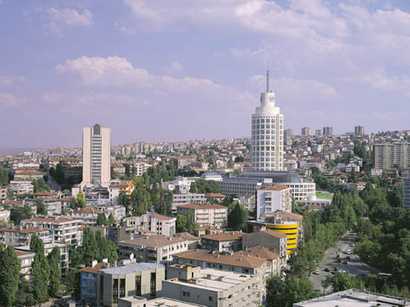Elmira Bayrasli, Contributor
Weekly stories about entrepreneurs, innovations and innovative ideas
Startup Turkey
Thunder and lightening bookmarked eTohum’s Startup Turkey’s annual gathering this past weekend. It fit. The congregation of Turkish and regional entrepreneurs (from Azerbaijan, Bulgaria, Egypt, Greece, Jordan, Lebanon, Uzbekistan) stormed Antalya, on the Mediterranean coast for two and a half days of pitches and panels – the usual rundown for these events. What did I take away? Five points. I’ve outlined them below and will detail over the week ahead.
- Get out of Silicon (insert here): After talking to 23-year old Ankara-based Ali Cevik, I realized the importance of finding new markets and getting outside mainstream tech centers.
- I met the Arab Jeff Bezos: He’s Ala Suleiman who gave up a career in computer engineering to put books on tape for the Arab world.
- Entrepreneurial financing in between angel and venture isn’t mezzanine: It’s angel heavy. The iLab Ventures story
- The Arab world isn’t a country
- Broadbandgaria: South Eastern Europe’s Internet hope?
Startup Turkey Take Away #1
Turkey’s Entrepreneurial Ecosystem: More Than Just Start-Ups![]() Elmira BayrasliContributor
Elmira BayrasliContributor
Entrepreneurs avoid government. Most, fearful of regulation and interference, keep an arm’s distance from his or her country’s bureaucrats. Ali Cevik is an exception. An engineering student at Bilkent University in Turkey’s capital, Ankara, the 23-year and a friend founded Imcom, a tech company that leverages 3D scanning for retailers. With Imcom’s technology, he told me during Startup Turkey, furniture shops can scan that red chair on display and show potential clients what it looks like in different colors. “We didn’t solve a problem,” he said. “We were just playing with the technology; the concept of the smart projector became a technical challenge for us.”
Turkey’s Ministry of Science, Industry and Technology found it compelling enough to fund.Microsoft’s BizSpark program has lent support as well. I found it refreshing: a Turkish startup that’s not an e-commerce clone. Away from Istanbul where clones and tech startups dominate, Ali found encouragement to pursue the idea many dismiss as hardware heavy and, thereby, capital dependent. Amid the Anatolian heartland where furniture manufacturers catapulted to global stardom, the odds on healthy scanner sales run high. These Anatolian Tigers need to maintain competitiveness.
In talking to Cevik I realized the importance of looking for an original market as much as an original idea. In crowded Istanbul it’s hard to see anything but trees. From Ankara, despite being a government town, Ali and those supporting him have a good view of the forest. And, boy, is it green.
Imcom goes beta in the Turkish capital today. It will test in the western city Canakkale in a few weeks.
https://www.forbes.com/sites/elmirabayrasli/2013/02/18/startup-turkey/






